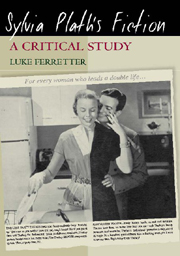3 - The Politics of Plath's Fiction
Published online by Cambridge University Press: 12 September 2012
Summary
It is surprising for how long critics have been arguing, against a tendency to interpret Plath's work in personal or psychological terms, that Plath was a politically engaged thinker and writer. Stan Smith made this case in 1982. Twenty years later, Tracy Brain could still argue, against ‘the conventional personal readings to which [Plath's writing] is customarily subjected’, that Plath's work is ‘deeply, politically engaged with [the] world’. Although so influential a critic as Sandra Gilbert could claim that Plath ‘did not have an explicitly political imagination’, more recent studies have shown that Plath was constantly thinking and writing about the political discourses and events with which she was surrounded, from the time she went to Smith College to the end of her life. Al Strangeways has argued that Plath's work articulates a complex intellectual, emotional and aesthetic investment in contemporary history and politics. Robin Peel has demonstrated how thoroughly Plath's thought and work are saturated by contemporary political discourses, from philosophy books and lectures to magazines and radio programmes. Whilst Peel has dealt in some detail with The Bell Jar, the tendency amongst studies of Plath's historical and political writing has been to focus on her poetry, and on her later poetry in particular. In this chapter, I discuss the political views Plath developed throughout her writing life and trace her expression of these views in her fiction.
- Type
- Chapter
- Information
- Sylvia Plath's FictionA Critical Study, pp. 90 - 115Publisher: Edinburgh University PressPrint publication year: 2010

